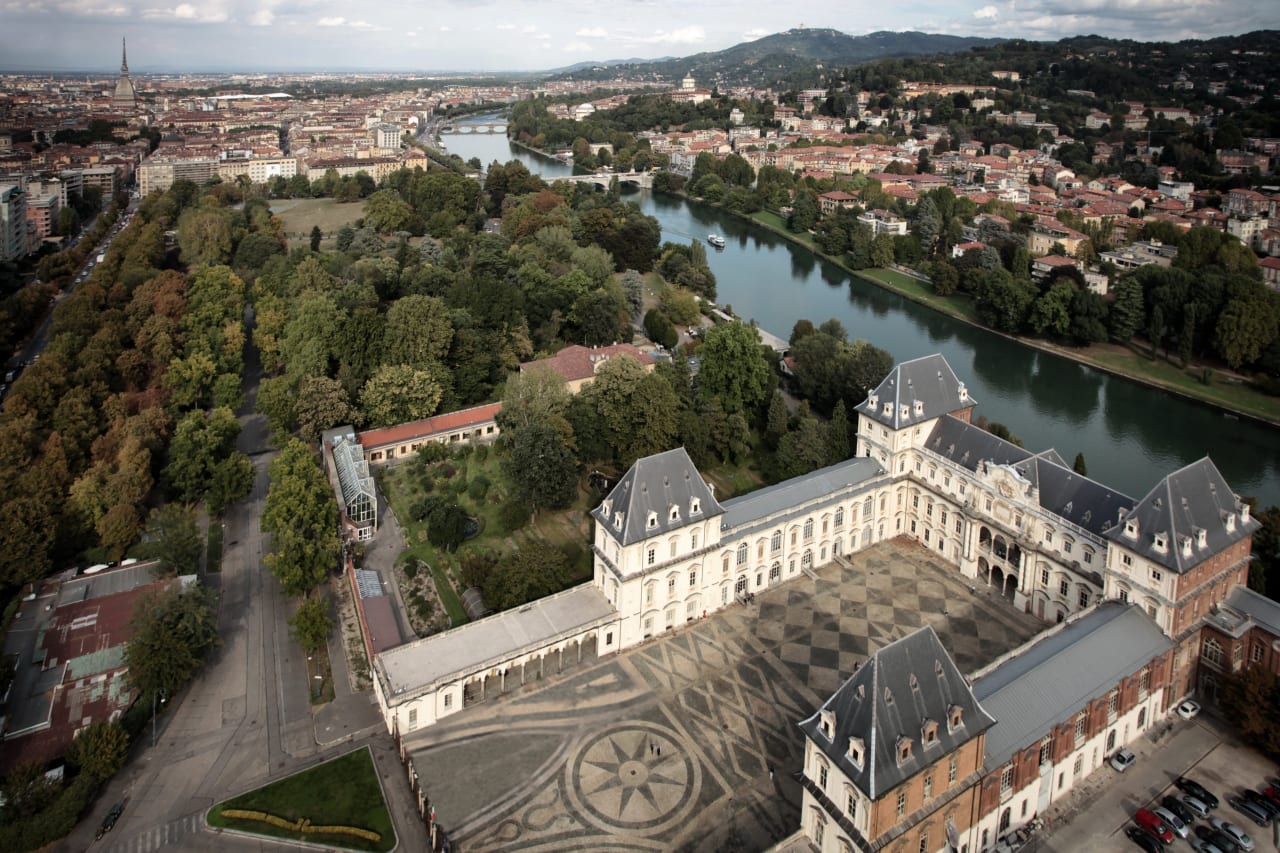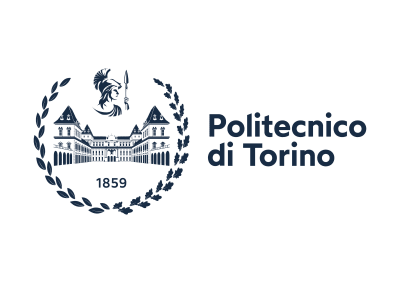
Politecnico di Torino

Introduction
Enter the world of PoliTO and find all the information you need to make the right choice!
From May 26th to 28th, join the online OPEN DAYS on Master Degree’s Courses, designed to help you build your future: 33 Master Degree’s courses in the areas of engineering, architecture, design, and territorial planning.
An occasion to discover also the services, projects, student teams, opportunities for foreign students, and more.
For 160 years, the Politecnico di Torino has been one of the most prestigious public institutions at both the International and the Italian levels concerning education, research, technological transfer, and services in all sectors of architecture and engineering.
The Politecnico di Torino was founded in 1859 as Scuola di Applicazione per gli Ingegneri (Technical School for Engineers), and it became Regio Politecnico di Torino in 1906. A long history, which bore out the University as a reference point for education and research in Italy and in Europe, a Research University of international level which attracts students from more than 100 countries and which activates about 800 collaborations per year with industries, public institutions, and local organizations.
The attention to theoretical and applied research, the knowledge and development of cutting edge technologies, the concreteness and realism concerning the management of a manufacturing process or the organization of service, the care of functionality without ignoring design, the analysis and proposition of solutions to the challenges of the society of today in order to plan a sustainable future: graduates from the Politecnico di Torino receive an education that goes far beyond technical knowledge. They are able to manage the interdisciplinary nature of the scientific world of today without forgetting social, ethical, economic, and environmental implications.
Excellent results in education and research fields, positive judgments from students, education processes of quality, and the ability in winning national and European grants brought the Politecnico di Torino to an excellent place in the assessment drawn up by the Italian Ministry of Education, Universities, and Research (MIUR). A positioning proved by the good results of the University at the European level.
The Inter-university Department of Regional and Urban Studies and Planning
The Inter-university Department of Regional and Urban Studies and Planning (DIST) is a leading joint structure of Politecnico and Università di Torino working in the cultural area of territorial transformation and government of territorial processes analyzed in their physical, economic, social, political, cultural aspects and their inter-relationships, in a sustainable perspective, from global to local scale.
DIST promotes, coordinates, and manages basic and applied research, training, and technology transfer and services to the territory particularly focused on the sciences and the urban and regional policies and on territorial, urban, and environmental-landscape, project, and planning.
Moreover, DIST research areas include analysis, planning, and government of the territorial context; urban planning and policies for sustainable development of the urban and rural areas; diagnostic and management of cultural, architectural, and landscape heritage; human, economic, and political geography; urban and environmental sociology and media; methods and techniques of survey and representation at urban and territorial scales; history and conservation of the architecture of the city and its territory; transport and logistics planning; technical and economic feasibility of urban plans and projects.
DIST encourages interdisciplinary activities focused on the enhancement of interactions among researchers coming from different cultural areas. DIST supports research activities linked to its scientific subjects and promotes relations with other sectors. DIST strongly promotes participation to local, national, European, and international research programs.
Within its cultural areas, DIST organizes, manages, and delivers high-level teaching (three-year Bachelor-level, Master of Science level, Master of I and II levels, Specialisation Schools, Doctoral Research) providing inter-departmental and inter-university courses. Furthermore, it promotes and sustains both professional education to public authorities and services to private companies, with specific training courses at various levels.
DIST coordinates the following courses at the Master of Science level:
- Msc in Urban and Regional Planning (in English);
- Digital skills for sustainable societal transitions (in English);
- Geography and territorial sciences (in English and Italian);
- Environment, culture and territorial economics (in Italian)
- Planning of green areas and landscape (in Italian);
DIST promotes training activities based on testing thanks to the support of teaching and research laboratories as the Laboratory of Urban and Territorial Analysis and Representation (LARTU) and the Laboratory of High Quality (LAQ-TIP).
IMPORTANT NOTE: the MS in Urban and Regional Planning constitutes the updated and improved version of the MS in Territorial, Urban, Environmental and Landscape Planning, that has been offered at Politecnico di Torino in the period 2005-2023. The new MS maintains the key assets of the previous course, while at the same time actualising its contents and teaching methods, to prepare its students to face new and emerging territorial development and planning challenges.
Campus Features
Campuses of the Politecnico di Torino draw inspiration from the structure of Anglo-Saxon ones, with multipurpose buildings for teaching, basis and applied research and services to the students in Turin, and a regional network of technological centers (Alessandria, Biella, Mondovì, Verrès), dedicated to research activities, technological transfer, specialist education and services to the region.
The historical and representative base of the Politecnico is in the town, on the River Po: the Castle of Valentino, a House of Savoy of the 17th Century. It is the main teaching campus for Architecture and has an area of 23,000 sq. m.
The big complex in Corso Duca degli Abruzzi - with 122,000 sq. m., the main campus of Engineering - was opened in 1958 and it is completed by the Cittadella Politecnica: a modern complex of 170,000 sq. m. adjoining the main building, including areas dedicated to students, research activities, technological transfer, and services.
The newest campus is the Design and Sustainable Mobility Citadel, in an area adjoining to the manufacturing establishment of Mirafiori, a Fiat manufacturing facility that has been remodeled as well as the Lingotto building, which hosts the Master School.
Rankings
Position within International Rankings
2020 QS World University Ranking
- Overall Ranking: #348 - Top 33% globally
- By Broad Subject: #41 Engineering and Technology
- 2019 QS WUR by Subject:
- #38 Architecture / Built Environment
- #24 Civil and Structural Engineering
- #42 Electrical & Electronic Engineering
- #31 Mechanical, Aeronautical, Manufacturing & Production Engineering
- #24 Mineral & Mining Engineering
2020 QS - Graduate Employability Ranking
- Overall ranking: #111-120 - Top 24% globally
- By Indicator: #14 Graduate Employment Rate
2019 The Europe Teaching Ranking
- Overall Ranking: #101-125
- By Indicator:
- #22 Engagement (Commitment toward students)
- #48 Outcomes (Capacity to generate added value)
(more data and information is available here)
Locations
- Turin
Viale Pier Andrea Mattioli, 39 - 10125 Torino (TO), 10125, Turin
Programs
- Interuniversity Master's Degree in Geography and Territorial Sciences
- MSc in Architecture Construction City
- MSc in Architecture for Heritage
- MSc in Architecture for Sustainability
- MSc in Automotive Engineering
- MSc in Building Engineering
- MSc in Civil Engineering
- MSc in Communications Engineering
- MSc in Computer Engineering
- MSc in Cybersecurity
- MSc in Data Science and Engineering
- MSc in Electronic Engineering
- MSc in Energy and Nuclear Engineering
- MSc in Engineering and Management
- MSc in ICT for Smart Societies
- MSc in Materials Engineering for Industry 4.0
- MSc in Mechanical Engineering
- MSc in Mechatronic Engineering
- MSc in Nanotechnologies for ICTs
- MSc in Physics of Complex Systems
- MSc in Quantum Engineering
- MSc in Urban and Regional Planning
- Masters In Digital Skills for Sustainable Societal Transitions